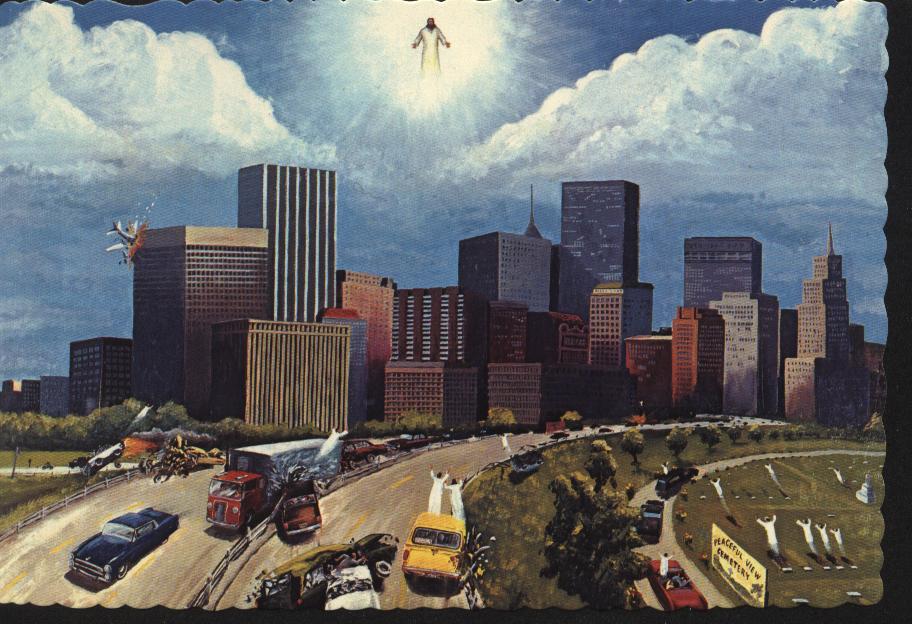Q. I find it illogical reasoning. Pre-tribulation believers say that the word Church is not mentioned after Revelations chapter 3, which means the Church won’t be on earth (raptured out). Jesus was giving messages to the churches, so naturally, the word church was no longer mentioned subsequently. But what about the words “the saints” and “God’s people”?
Pre-tribulation supporters say the rapture is secret. How could it be secret when suddenly millions or billions of people disappear and accidents everywhere (driverless cars), missing family members, and children orphaned?
They say Rev. 3:10 means to take out of (raptured), but the original text means to protect. If Rev. 3:10 means raptured out, then no need for verses 11 and 12 as they won’t be on earth!
The problem may arise from a mindset that prioritizes ease and comfort. When someone with that mentality reads a verse such as:
1 Thes 1:10 and to wait for His Son from heaven, whom He raised from the dead, that is Jesus, who rescues us from the wrath to come,
the interpretation would focus on being delivered from trouble altogether.
However, historically, that had not been God’s way. For example, He kept Noah’s family safe through the Flood. He did not whisk them away before the Flood came. When God delivered the Israelites out of Egypt, He delivered them through the Red Sea. God did not “rapture” them to safety. Throughout Israel’s history, He kept the nation as He promised the patriarchs but allowed them to suffer the consequences of their sins so that they would learn to follow Him. The same is true throughout church history. Why would He change His method to favor the last generation of Christians when most people’s love has grown cold (Mt 24:12)? So they won’t face trouble and learn? Hardly!
To justify their assertion, pre-tribulation proponents use circumstantial “evidence.” For instance,
- Rev 3:10 Because you have kept the word of My perseverance, I also will keep you from the hour of testing, that hour which is about to come upon the whole world, to test those who dwell on the earth.
They claimed that “keep you from the hour of testing” means “keep you from the time of trouble,” i.e., take or rapture you away to avoid that period altogether. You pointed out that the New Living Translation is:
- NLT Because you have obeyed my command to persevere, I will protect you from the great time of testing that will come upon the whole world to test those who belong to this world.
But what is God’s method of protection? Remember the Ten Plagues?
- Ex 9:6 So the Lord did this thing on the next day, and all the livestock of Egypt died; but of the livestock of the sons of Israel, not one died.
- Ex 9:26 Only in the land of Goshen, where the sons of Israel were, there was no hail.
- Ex 10:23 They did not see one another, nor did anyone rise from his place for three days, but all the sons of Israel had light in their dwellings.
- Ex 12:23 For the Lord will pass through to smite the Egyptians; and when He sees the blood on the lintel and on the two doorposts, the Lord will pass over the door and will not allow the destroyer to come into your houses to smite you.
God’s way has always been to protect through the time of testing, not avoiding it. So, the argument based on the wording “hour” or “time” is not supported by actual examples.
What about the absence of the word “church” after Rev 3? Does that mean the Church has been raptured and is no longer on earth? Some even suggest that Rev 4:1’s “come up here” refers to the rapture:
- Rev 4:1 After these things I looked, and behold, a door standing open in heaven, and the first voice which I had heard, like the sound of a trumpet speaking with me, said, “Come up here, and I will show you what must take place after these things.”
This misinterprets Scripture as the phrase applies strictly to John, not the Church.
The above is an example of an “argument from silence,” a weak form of evidence. Borrowing from forensic investigations, direct physical, written, or verbal evidence is needed to “prove” a case. Circumstantial evidence can support an argument but is insufficient to prove it beyond a reasonable doubt. Your observations of “the saints” and “God’s people” are direct evidence in referencing the Church. But of course, pre-tribulation supporters claim that these apply only to the Jews or Christians saved after the rapture. If the mind is closed, you can find all kinds of excuses to justify yourself, which is sad!


